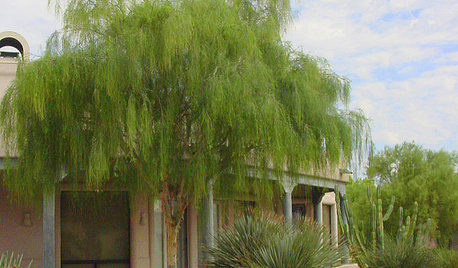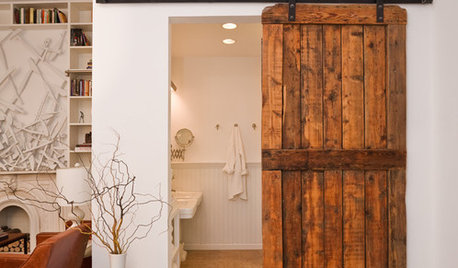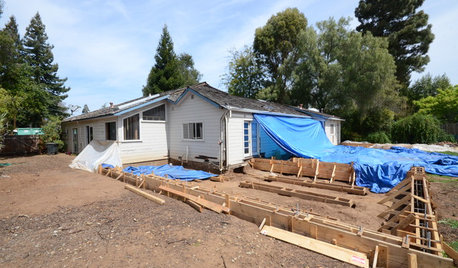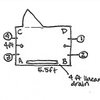Warning: this is a really long winded post!
We just relocated to Southern California and will close escrow on a newly constructed home at the end of March. In our rental we noticed obvious signs of hard water. We want to protect the appliances and plumbing in our new home (not to mention our skin and clothing) from hard water damage so we are considering a water softener.
I obtained the following information from the water districts annual report:
Hardness 11.8 grains per gallon or 201 parts per million.
Chlorate ppb 24 Â 43(o) (by-product of drinking water chlorination; industrial processes)
Chloride ppm 88 (runoff or leaching from natural deposits; seawater influence)
Potassium ppm 3.9
Aluminum ppb 75
Boron ppb 140
Chromium ppb 0.11
Vanadium ppb 3.3
Arsenic, Barium, Lead, and MTBE essentially at non detectable levels.
IÂve never lived in an area with water noticeably hard enough to soften, so water softeners are as familiar to me as UFOÂs.
I think I understand the basic process of how water is softened. In a nutshell itÂs a process of exchanging calcium and magnesium ions in the water for sodium ions; the untreated water is passed through a resin media saturated with sodium ions; over time, the exchange of ions saturates the resin with calcium and magnesium ions; the resin is then "regenerated" with a sodium solution. The sodium solution is used to displace and flush the calcium and magnesium off the resin and re-saturate the media with sodium ions. Either salt or potassium chloride is used for the brine. Water softening simply removes the mineral calcium and magnesium; it does not remove impurities as it is not a not a filtration process.
That said, I have an ultra keen sense of smell, which means I have an ultra keen sense of taste; the tap water here isnÂt to my liking to begin with and my husband says I will probably notice a taste difference of softened water (heÂs used a softener in the past, but many, many years ago). So IÂm thinking about a water filter for the kitchen as well.
Any advice would be greatly appreciated as I'm in totally unfamiliar territory here.
Q1. What are the key features to look for in a water softener? In other words, what features do you look for to judge the quality of the system?
Q2. Chlorine filter vs. carbon in the resin tank: mixing carbon in the resin tank to neutralize the chlorine seems illogical to me. Carbon loads up fast and must be changed frequently to be effective. I know this because I must change my pre-carbon filters at 4x's the frequency as my HEPA filters on my air purifier. Resin doesn't perform the same functions as carbon; ions simply cling to the resin surface; it takes years before its surface is rendered ineffective so it does not need to be changed frequently; I also understand it is very expensive to replace. My guess is if you replace the carbon, you will end up replacing the resin before you really need to; so it doesn't make economic sense to mix the two in the same tank.
With the level of chlorine in our water, will a cartridge filter work? Or do I need something bigger?
Q3. Drinking water filters: will a reverse osmosis filter system improve the taste of water AND remove the potassium, aluminum, boron, chromium, vanadium in our water? If soÂ
Q4. What are the key features to look for a reverse osmosis filter system? In other words, what features do you look for to judge the quality of the system?
Q5. Salt vs. Potassium chloride: discharge of sodium into the cityÂs sewer system is fast becoming an issue in our state; one city in the area banned the use of residential salt water softeners; all salt water softeners in that city must be removed by June 2009.
Potassium chloride, is NOT recommended by some of the manufactures, such as Kinetico. Does anyone know why potassium chloride is not suitable for some softeners, but okay for use in others? What damage will result to the softener? What brands can potassium chloride be used in safely?
Q6. Is a sodium filter for water softeners available?
Q7. Since there is no room in our garage for a water softener (downsized house came with a downsize garage), the logical solution is to replace the humongous water heater with a tankless one, then put a water softener where the water heater currently sits. So the question is can I place a cartridge chlorine filter next to the softener, or do I have to find a location some minimum distance "up stream" from the water softener?
Note: I've read about the no-salt softeners. I believe in tried and true science; a no-salt softener will NOT soften my water as they do not remove the minerals calcium and magnesium from the water. Easy Water flat out states their system does not remove minerals from water, rather it "changes the physical shape of those minerals and is a descaler, not a softener." I give them credit for their honesty--some are not so honest.
Bottom line: if you don't remove theses minerals, you are not softening the water. That is why no-salt systems can't get certification from the Water Quality Association and/or NSF International--descaling qualities alone aren't good enough, they need to remove the minerals from the water.

















andy_c
calgal59Original Author
Related Discussions
Water Softener questions
Q
just bought house with water softener, beginner questions
Q
Water Softener/Filter Questions
Q
Water Test Results/Filtration/Softener set-up question(s) -Lurker?
Q
andy_c
Larry_Edwards
User
Larry_Edwards